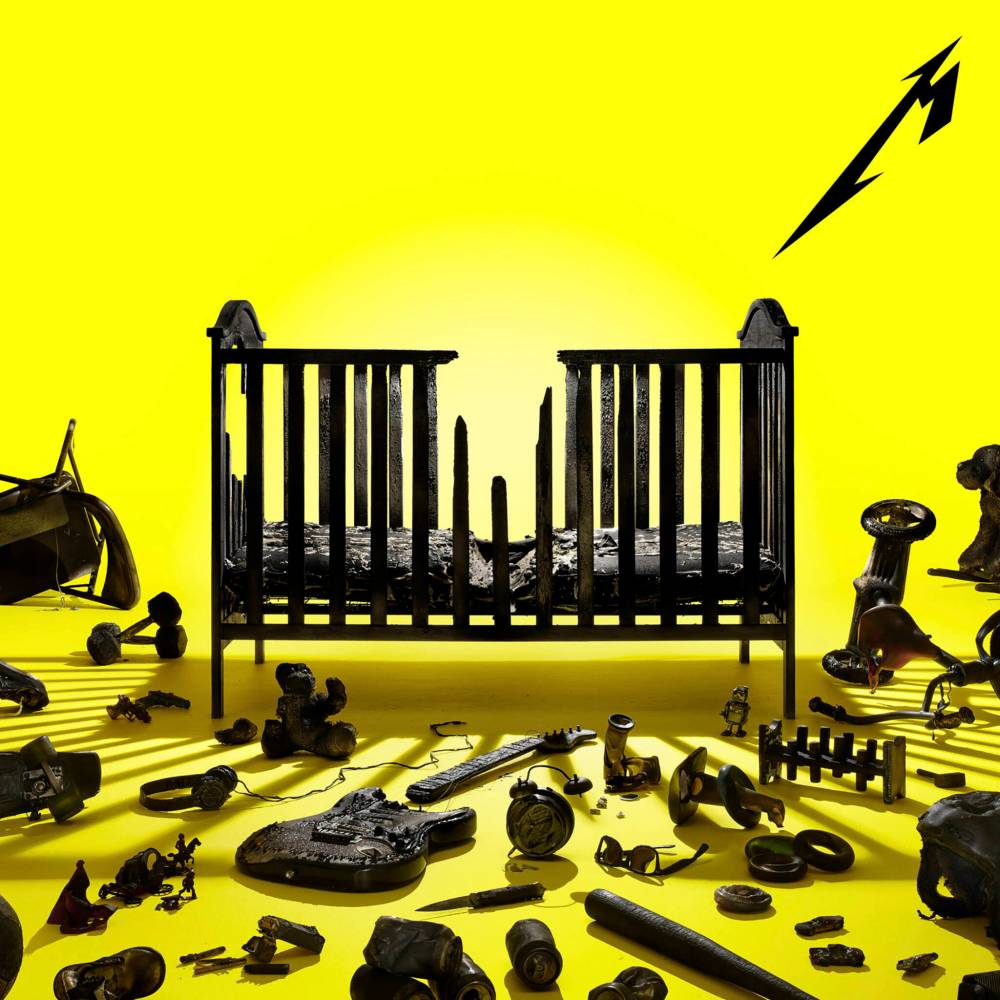New music
Reviews of this week’s CD releases
Advertisement
Read this article for free:
or
Already have an account? Log in here »
To continue reading, please subscribe:
Monthly Digital Subscription
$0 for the first 4 weeks*
- Enjoy unlimited reading on winnipegfreepress.com
- Read the E-Edition, our digital replica newspaper
- Access News Break, our award-winning app
- Play interactive puzzles
*No charge for 4 weeks then price increases to the regular rate of $19.95 plus GST every four weeks. Offer available to new and qualified returning subscribers only. Cancel any time.
Monthly Digital Subscription
$4.99/week*
- Enjoy unlimited reading on winnipegfreepress.com
- Read the E-Edition, our digital replica newspaper
- Access News Break, our award-winning app
- Play interactive puzzles
*Billed as $19.95 plus GST every four weeks. Cancel any time.
To continue reading, please subscribe:
Add Free Press access to your Brandon Sun subscription for only an additional
$1 for the first 4 weeks*
*Your next subscription payment will increase by $1.00 and you will be charged $16.99 plus GST for four weeks. After four weeks, your payment will increase to $23.99 plus GST every four weeks.
Read unlimited articles for free today:
or
Already have an account? Log in here »
Hey there, time traveller!
This article was published 13/04/2023 (1002 days ago), so information in it may no longer be current.
POP/ROCK
Richard Duguay
Beautiful Decline
(Cursed Blessings Records)
Thousands of guitar slingers have joined rock ’n’ roll’s flying circus and soared too close to the sun, only to crash and burn. Most wind up with straight jobs, a load of regrets and stories of high times and warm beer that become less funny and more wistful with time. Ex-Winnipegger Richard Duguay is one of the few who can say he’s emerged from the journey with his purpose intact.
Duguay jumped into music as a teenager with a band called Lowlife, which released Winnipeg’s first punk single in 1979. He joined the legendary Personality Crisis in the early ’80s and embarked on a series of ups, downs and near-misses that took him to Vancouver, then L.A., and back and forth again. North Hollywood has been home for much of the past two decades and Duguay’s been active all the while, building his own studio, producing other people, playing live and writing and releasing his own material. His 2019 record, Bad Juju, was a raucous concept album about the ebb and flow of life on the margins which pulled together all Duguay’s 1970s musical influences — from punk’s buzzsaw energy to the down ’n’ dirty theatricality of early Alice Cooper.
Duguay and fellow guitarist/co-writer Marc Floyd had plans to tour the Bad Juju project extensively, but the COVID-19 pandemic got in the way, so they turned their talents instead to creating another album, on which they’ve outdone themselves. Beautiful Decline picks up where Juju left off, bringing the energy and spirit of Iggy’s street-walkin’ cheetah (check out I Gotta Move) to a Panavision world in which L.A’s soulless heart (typified in the album’s title track) meets the gutter wisdom of New York City (as on the Johnny Thunders-meets-the-Velvets snippet that is Widow’s Walk, or the backs to-the-wall declaration of Get in Line). The sonic palette is broadened here, too, with atmospheric synths and piano introducing a tragic hero called Kid Stardust, who is juxtaposed against Duguay’s energetic reading of The Alex Harvey Band’s Faith Healer. Through 11 songs, this is grand and epic stuff that sounds fantastic and is also deceptively complex — every listen reveals more and more of the exquisite musicality of rock ’n’ roll lifers giving it their best. ★★★★ out of five
STREAM THESE: Wasteland, Get in Line, I Gotta Move
— John Kendle
ROCK
Metallica
72 Seasons (Blackened Recordings)
Zoom has been credited for keeping students and teachers connected, the judicial system working and fitness classes jumping. You can add a Metallica album to that list.
The hard rockers met weekly over their computers to stay connected during the pandemic, a standing get-together that eventually became a songwriting factory that led to 72 Seasons, the band’s 12th full-length album, out Friday. It’s the sound of a band not slowing down, despite singer and rhythm guitarist James Hetfield and drummer Lars Ulrich turning 60 this year and guitarist Kirk Hammett already on the other side of that milestone. Bassist Robert Trujillo is the baby, at just 58.
The album is a typical Metallica album — fast and furious with superb artistry — and lyrics that poke at the scab of pain and alienation. Yet there are some shoots of hope, as when Hetfield snarls, “Without darkness/There’s no light.”
The title refers to the first 18 years of a person’s life and the album explores the cruelty of youth and the dangers of growing up.
Noteworthy is Screaming Suicide, with a nasty inner voice taunting the singer. While far from the first time the band has tackled the issue, this time Hetfield drives into it, singing “Don’t ever speak my name/Remember you’re to blame/Keep me inside/My name is suicide.”
72 Seasons also sees Hetfield experimenting with vocal effects and styles, like ghostlike chanting on You Must Burn! and an almost languid, glam vibe on Crown of Barbed Wire.
Another change is that Hammett and Trujillo were given writing credits on more than half the album, a return to the way previous albums came together, like Death Magnetic and St. Anger.
The album closes with Inamorata, a sprawling song that uncoils with snarling riffs as Hetfield sings, “Misery, she needs me/Oh, but I need her more.” It clocks in at 11:10, making it one of Metallica’s longest songs.
— Mark Kennedy, The Associated Press
JAZZ
The Composers Collective Big Band
The Toronto Project (self-produced)
There is no doubt that some Winnipeggers have very mixed feelings about Toronto and the GTA generally, but jazz folks appreciate that there is a fantastic jazz community there. Among the huge variety of jazz based there is The Composers Collective Big Band, pulled together periodically and comprised of 18 musicians from the GTA. Christian Overton is main composer, musical director and plays trombone in the band. The personnel list is impressive to say the least, and I’ll leave it for you to check it out. Several of the players provided compositions for the album.
The Toronto Project is an ambitious and sometimes wonderfully quirky tribute to the city using brief subway sounds and notifications of stops as segues between the tracks as the music moves figuratively around the city. The beginning of the album is the announcement Arriving at Yonge Station, and the album ends with Train Out of Town. The first musical track is West Toronto Ode, and offers a cheerful and upbeat opening to the musical tribute to the city. Non-Sequitur moves into a more adventurous mood with a fine solo by alto player Chris Roberts. There are actually fine solos throughout, with various members stepping up on each track. Jonathan and Andrew Kay on tenor and alto respectively are terrific on Interweave, and Tara Davidson is her usual excellent interpreter of a tune as in Inside the Toy Factory. Maya Killtron adds vocals on several tracks very effectively.
Earlier identification with Toronto mainstays like the Rob McConnell Boss Brass sound is brought forward with large ensemble arrangements that enhance the tradition while unmistakably reflecting now. I’m old enough to be pleased that the contemporary big band groove is alive in bands like this and the WJO. A very enjoyable album. ★★★★ out of five
STREAM THESE: Spadina, Non-Sequitur
— Keith Black
CLASSICAL
Joseph Moog & Kai Adomeit
Rachmaninoff, Bowen and Medtner
(Onyx Classics)
In this recent release by Onyx Classics, pianists Joseph Moog and Kai Adomeit join forces in three works written by a trio of composers hailing from the first half of the 20th century.
The first of those is Rachmaninoff’s Symphonic Dances for two pianos, Op. 45, unusually written in tandem with his similar orchestral suite, also penned in 1940, that immediately displays the simpatico artistry of both players.
After the opening movement Non allegro, bristling with energy and packed with self-referential musical quotes, the pianists plunge into the subsequent Andante con moto. Popularly known as a “valse triste,” the duo brings out its halting theme rife with pregnant pauses and the Russian-born composer’s idiosyncratic harmonic language. The finale Lento assai – Allegro vivace pits the iconic Dies Irae motif against Rachmaninoff’s own reworked version of chant “Blessed Art Thou, O Lord” heard in his prior All-Night Vigil, with the musicians punching out rhythmic accents while ably navigating its mercurial moods.
It’s always a pleasure hearing works by the much lesser-known British composer York Bowen, popularly known as the English Rachmaninoff. The pianists infuse his Theme and Variations for Two Pianos, Op. 139 dating to 1951 with Elgarian stateliness, with its nine variations capped by a spirited coda.
Nikolai Medtner’s colourful Two Pieces for Two Pianos, Op. 58: No. 2 offers two final gems seldom performed, with the composer a favourite of Rachmaninoff’s. Living in Britain during the Second World War (further underscoring the inter-connectedness of the album’s selected composers), Medtner dedicated its opening movement Russian Round Dance (A Tale): Allegro vivace to pianist Edna Iles, who provided refuge to Medtner and his wife at her Midlands home as bombs fell in London. The musicians bring clarity to its propulsive rhythmic motives, leading to the second tone poem, Knight Errant: Andante – Allegro risoluto, rendered with crisp, military precision as an intriguing work one hopes to hear again – and soon. ★★★★ out of five
STREAM THIS: Rachmaninoff’s Symphonic Dances for Two Pianos, Op. 45, Non Allegro
— Holly Harris





